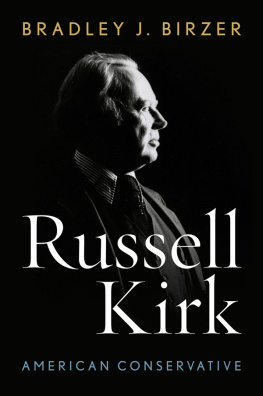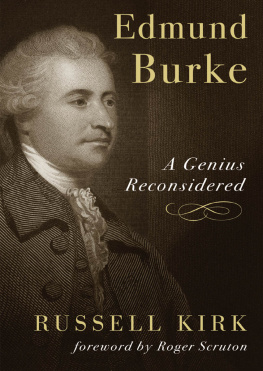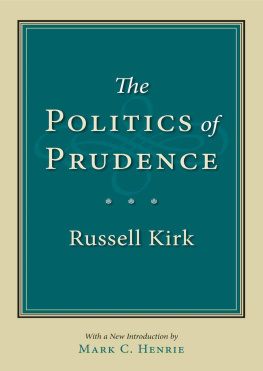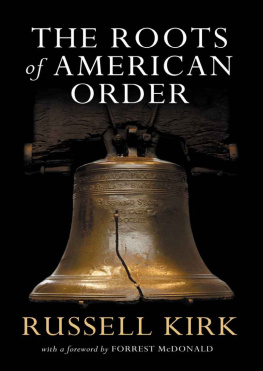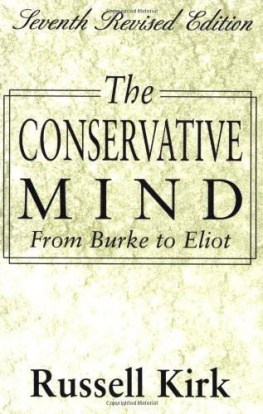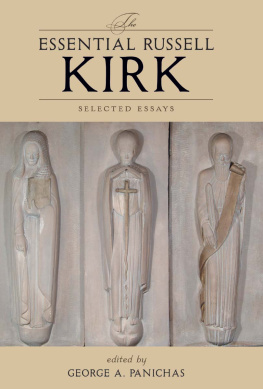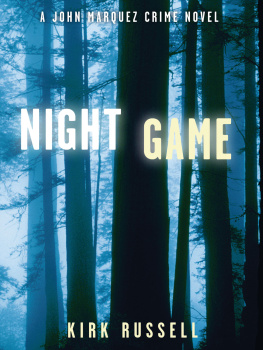Due to variations in the technical specifications of different electronic reading devices, some elements of this ebook may not appear as they do in the print edition. Readers are encouraged to experiment with user settings for optimum results.
Copyright 2015 by The University Press of Kentucky
Scholarly publisher for the Commonwealth,
serving Bellarmine University, Berea College, Centre College of Kentucky, Eastern Kentucky University, The Filson Historical Society, Georgetown College, Kentucky Historical Society, Kentucky State University, Morehead State University, Murray State University, Northern Kentucky University, Transylvania University, University of Kentucky, University of Louisville, and Western Kentucky University.
All rights reserved.
Editorial and Sales Offices: The University Press of Kentucky
663 South Limestone Street, Lexington, Kentucky 40508-4008
www.kentuckypress.com
All photos courtesy Annette Kirk.
Cataloging-in-Publication data is available from the Library of Congress.
ISBN 978-0-8131-6618-6 (hardcover : alk. paper)
ISBN 978-0-8131-6620-9 (epub)
ISBN 978-0-8131-6619-3 (pdf)
This book is printed on acid-free paper meeting the requirements of the American National Standard for Permanence in Paper for Printed Library Materials.

Manufactured in the United States of America.
| Member of the Association of
American University Presses |
Introduction
In the summer of 1951, Russell Amos Kirk entered York Minster, one of the largest cathedrals in all of the United Kingdom and the northern realms of Europe. There, the young, slightly agnostic man heard something that stirred his very soul. The Hudderfield Choir and the London Symphony Orchestra performed a concert as the sun set, and Kirk imagined standing with the besieged Royalists in the summer of 1644 as the Roundheadsmostly Scottish Covenanters and Parliamentariansbombarded the cathedral with musketry. With resignation toward their inevitable martyrdom, the Royalists sang the Te Deum. In some fashion, a mystery probably even to himself, Kirk experienced that night a timeless moment, an incident so profound that it echoed across the centuries, riveting the young American who longed to find his place in a chaotic world.
The parish church at Little Gidding had affected T. S. Eliot in a similar manner, the poet identifying with Charles I, who sought a temporary respite from the Civil War.
History is a pattern
of timeless moments. So, while the light fails
On a winters afternoon, in a secluded chapel
History is now and England.
Eliot concluded that Charles realized he needed to submit to divine grace for his life to have meaning.
Eliots good friend and one of the single most important influences on Russell Kirk, Christopher Dawson, had also experienced a timeless moment. Of the three, Dawsons proved the most jarring. On Easter 1909, as he stood at the Ara Coeli in Rome, he believed God gave him a vision of all times and places at once, calling him to devote his life to recording this vision. Dawson did his best to live up to this calling, but he suffered through a lifetime of doubt and insecurities in his attempt to secure what he believed a personal divine command.
Kirk was no stranger to mystical occurrences, and his own imaginative rumination at York suggests much the same experience as that of his heroes, Eliot, Dawson, and Gibbon. A place infused with history spoke across the ages, connecting man to man, soul to soul, and era to era. As Kirk more often would than would not, he sided with the lost cause of the Anglicans at York, those who stood resolutely for the traditions of their faith and their king. Never an admirer of the Protestant Reformers, even in his more objective writings and scholarship, Kirk considered them mischievous radicals, rabble-rousers, and levelers, taking down history and tradition in a revolutionary whirligig and mindless melee of destruction. What Eliot, Dawson, and Kirk shared was a poetic vision, an imagination shaped by intelligence, ethics, and morality. As Kirk wrote in his magnum opus The Conservative Mind, Man is drawn forward by a power outside himself, which works through Ideas. An Idea is an immutable spiritual truth communicated to man through the faculty of intuition: the dogmas of religious faith, the principles of morals, the rules of mathematics, and the laws of pure science are apprehended through the intuition (varying in its strength from one man to another), and by no other means can this knowledge be obtained. Ideas are beyond the grasp of mere Understanding. And Ideas, well or badly apprehended, rule the world. In 1951, as Russell Amos Kirk sat in York Cathedral, Plato and St. Augustine spoke to him through the despondently hopeful Cavaliers, doomed to martyrdom in the City of Man but also to eternal bliss in the City of God. Or so Kirk began to suspect.
1953
If ideas truly rule the world, a person on the American right might justifiably consider the year 1953 an annus mirabilis. Not only did Russell Kirks The Conservative Mind appear, but so did a number of other works crucial to the formation of the postwar conservative movement. Robert Nisbet published his sociological masterpiece The Quest for Community; Leo Strauss published Natural Right and History; Ray Bradbury Fahrenheit 451; Alfred Bester The Demolished Man; T. S. Eliot The Confidential Clerk; Christopher Dawson the seminal article Christianity and the Humanist Tradition; and Daniel Boorstin The Genius of American Politics. The previous
Of all of these important and influential works published in the first third of the 1950s, none of the nonfiction works could match The Conservative Mind in terms of widespread respectability and outreach. Emerging from two decades of the Great Depression and the New Deal at home and radical ideologies and war abroad, conservatism seemed black, blue, beaten, adrift, and broken, devoid of any real respectability. As the liberal Walter Lippmann had understood the situation in 1938, Throughout the world, in the name of progress, men who call themselves communists, socialists, fascists, nationalists, progressives, and even liberals, are unanimous in holding that government with its instruments of coercion must, by commanding the people how they shall live, direct the course of civilization and fix the shape of things to come.
Hence, in The Conservative Mind Kirk uncovered a lineage of apparently disparate figures: Edmund Burke, John Adams, Samuel Taylor Coleridge, John Randolph of Roanoke, James Fenimore Cooper, Alexis de Tocqueville, Orestes Brownson, John C. Calhoun, Abraham Lincoln, and others. Not only did Burkeanism hold these seemingly disconnected persons together, but each, as Kirk saw it, also embodied or promoted some permanent (or timeless, as Kirk wrote) truth in his own life, being, actions, or writings. The timeless truth one person exemplified need not be the same truth another demonstrated. Indeed, almost certainly, no two




